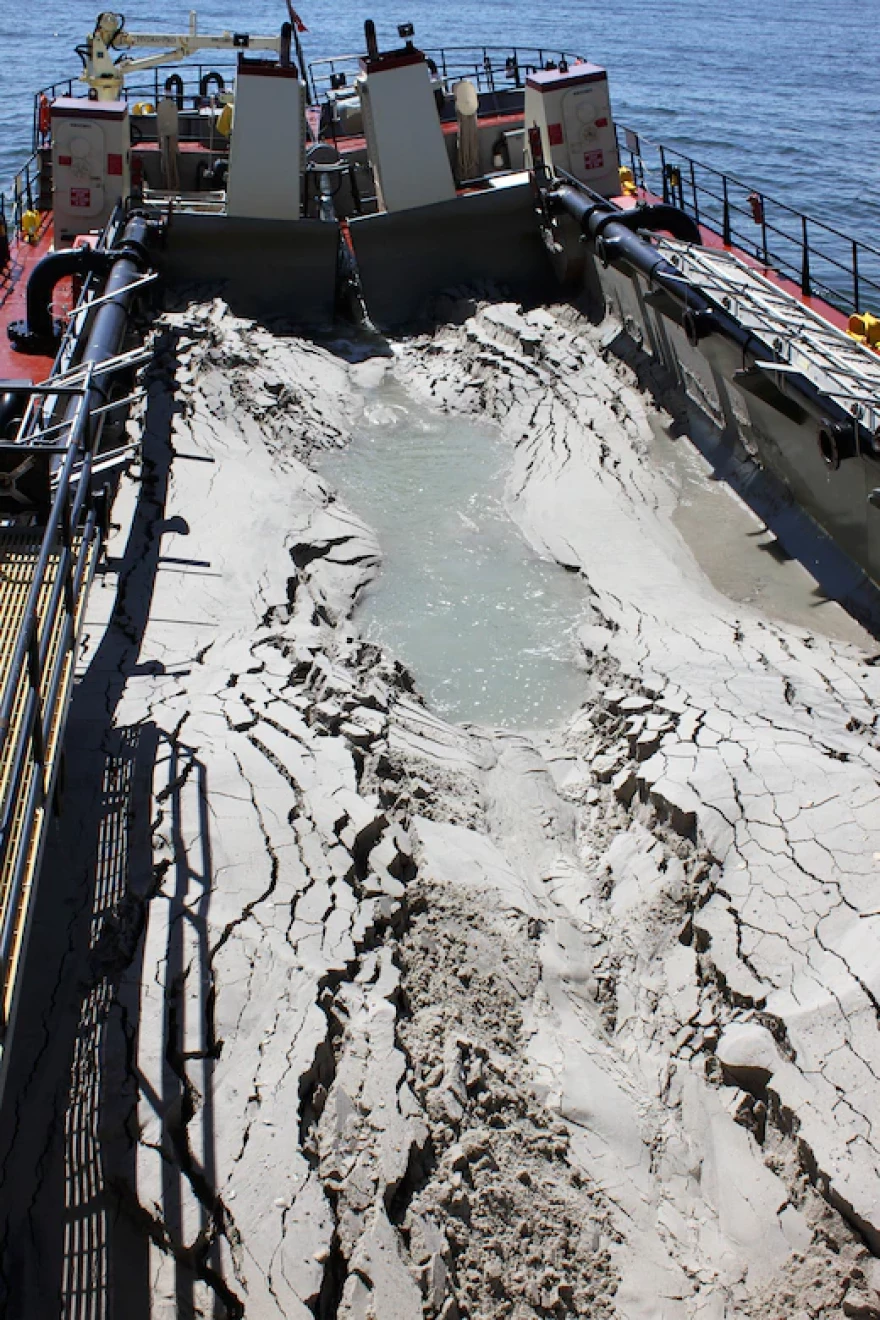Posted on August 25, 2021
In what the Southern Environmental Law Center calls “an abrupt reversal in decades of policy and practice,” the Corps now plans to allow hopper dredging year-round at Wilmington and Morehead City Harbors. That includes, according to the SELC, the height of turtle nesting season and times of year when many fish are in young sensitive life stages. So far, the decision has led to at least four sea turtle deaths in North Carolina. But the Corps argues year-round flexibility will offer efficiency, taxpayer cost-savings, and a more navigable channel.
Sea turtles, shortnose sturgeon, and Atlantic sturgeon are all protected by the federal government. They also can all be maimed or killed by hopper dredging. That’s why, according to the U.S. Army Corps of Engineers, they imposed their own dredging window in the 1990s and have held to that protocol ever since.
That is, until 2021.
Historically, the Corps has avoided dredging during times when these species are more likely to be in local waters. But in what the Southern Environmental Law Center calls “an abrupt reversal in decades of policy and practice”, the Corps now plans to allow hopper dredging year-round at Wilmington and Morehead City Harbors. That includes, according to the SELC, the height of turtle nesting season and times of year when many fish are in young sensitive life stages.
So far, the decision has led to at least four sea turtle deaths in North Carolina.
In response to the Corps’ policy change and on behalf of three conservation groups, the Southern Environmental Law Center has filed suit.
The Corps say eliminating the dredging window will increase efficiency — improving navigability and safety for commercial vessels while reducing costs for taxpayers.
A federal court has already ruled that the Corps may not dredge in Georgia’s Brunswick Harbor in the spring and summer of 2021.
The Corps also argues that removing the historic seasonal window is about shifting dredging to a risk-based management approach. In its Final Environmental Assessment, the Corps states, “[t]he Port of Wilmington has modernized to handle larger vessels and has completed a feasibility study to increase the harbor channel depth an additional 5 feet to accommodate future growth. Coastal navigation is a key element of State and local government economic development and job-creation efforts and is essential in maintaining economic competitiveness and national security.”
There are three plaintiffs in the lawsuit against the Corps: Cape Fear River Watch, North Carolina Wildlife Federation, and Defenders of Wildlife, a national nonprofit.
On this edition of CoastLine, we hear from one of those plaintiffs as well as the attorney who filed the suit.
We reached out to the Wilmington District of the U.S. Army Corps of Engineers, the federal agency being sued, and they referred us to the Department of Justice. In response to our invitation to join this discussion or issue a statement, a spokesperson with the DOJ wrote, “Thanks for the kind offer. Our general policy is not to comment on pending litigation, so we will decline…”

Guests:
Ramona McGee, Staff Attorney, Southern Environmental Law Center
Kemp Burdette, Riverkeeper, Cape Fear River Watch
Resources:
Read the lawsuit here:
https://www.southernenvironment.org/uploads/words_docs/SELC_Dkt._1_Complaint.pdf
Read the USACE Draft Environmental Assessment here:
Read the USACE Final Environmental Assessment here:






